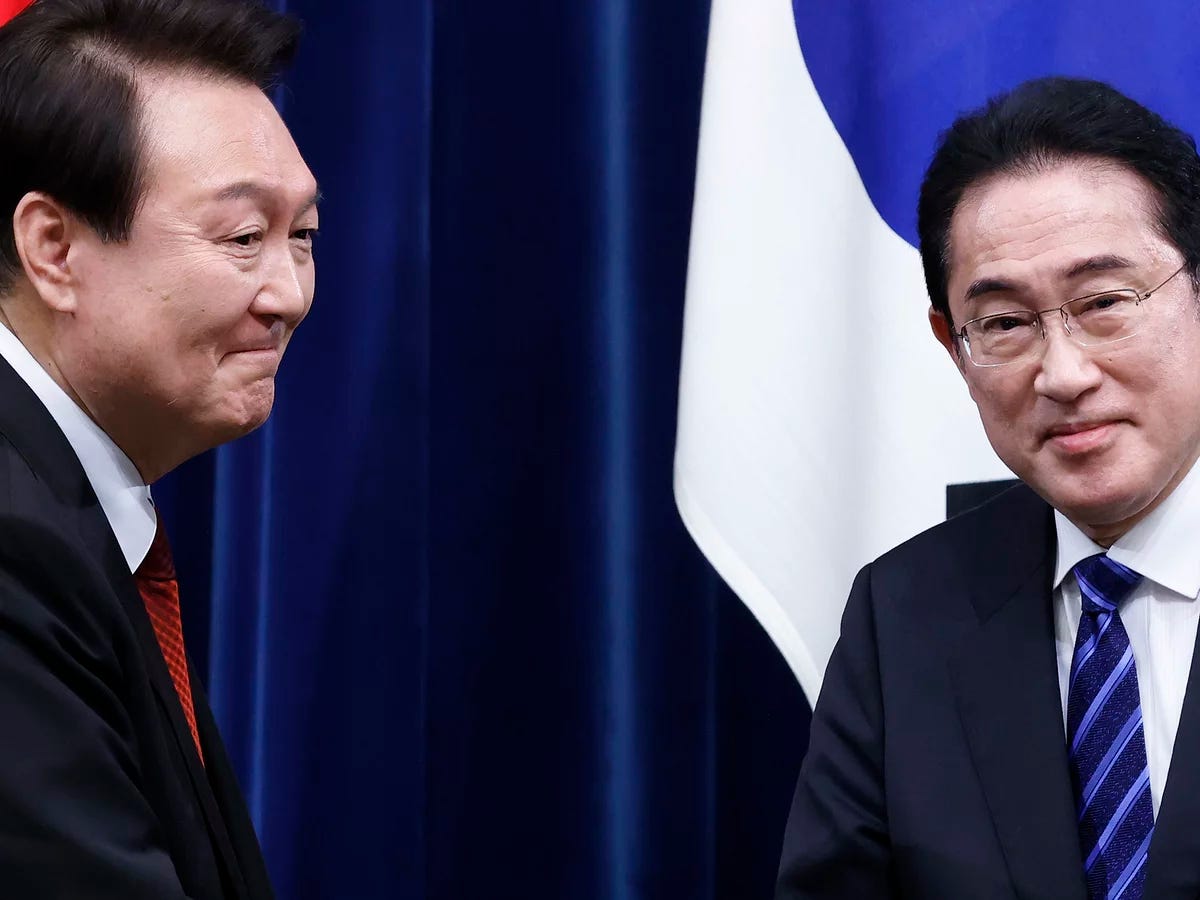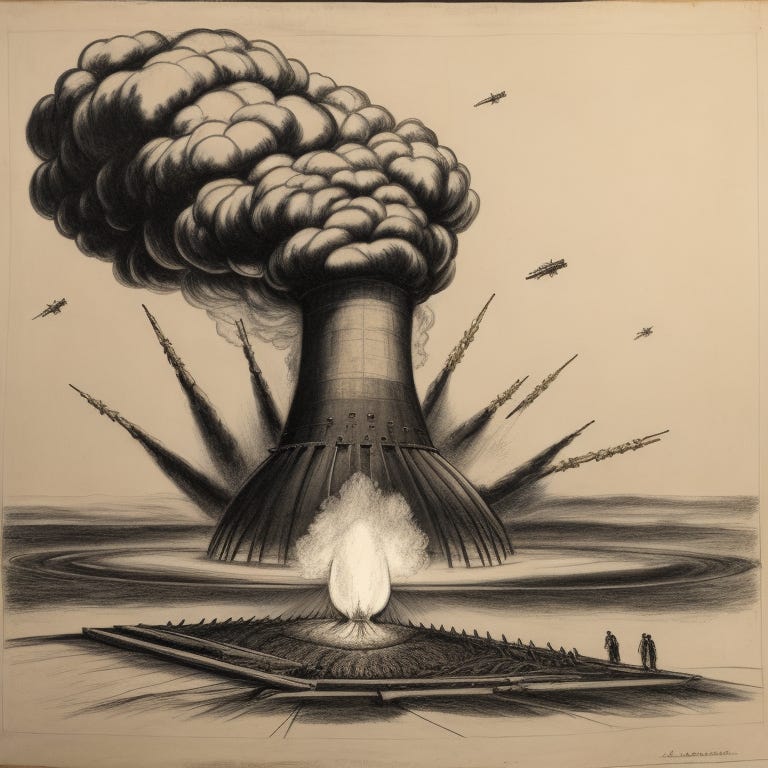Navigating the Northeast Asian Chessboard: The Yoon-Kishida Summit
On the Brink of History: How the Dramatic Interplay between Japan, South Korea, the U.S., and North Korea Reshapes the Global Landscape

Amid an increasingly volatile security situation in Northeast Asia, South Korean President Yoon Suk Yeol and Japanese Prime Minister Fumio Kishida held a groundbreaking meeting in Seoul, signaling a thaw in historically frosty relations between the two nations.
Their dialogue comes against an intensified North Korean nuclear program, marked by frequent missile tests near Japanese territory. Add to this the United States' recent decision to station nuclear-armed submarines in South Korea as a deterrent to North Korea's ongoing nuclear program, and the gravity of the regional situation becomes apparent.
President Yoon stated, "We must leave behind the perception that the two countries cannot move forward and cooperate."
Prime Minister Kishida echoed this sentiment, acknowledging the "grave security situation in Northeast Asia."
While the meeting between Yoon and Kishida is encouraging, the summit has evident considerations to keep at the forefront of one’s mind.
On the positive side, the meeting could usher in a new era of enhanced bilateral relations. A cooperative approach could present a united front against common regional threats amid historical tensions from wartime disputes and trade conflicts.
The summit also opens the door to bolstered security cooperation. A unified defense strategy, increased information sharing, and potential joint military exercises could prove vital in the face of North Korea's nuclear ambitions while at the same time being antagonistic towards the DPRK.
The recent U.S. move to deploy nuclear-armed submarines to South Korea could further solidify the tripartite alliance between the U.S., Japan, and South Korea, offering a robust deterrent to North Korea's threats. Maybe. Time will tell, but not without exposure to immense liability.
However, the meeting and subsequent decisions have their drawbacks. For one, the increased military presence and enhanced security cooperation will likely inflame North Korea, escalating tensions rather than acting as a deterrent. This coalescence could increase the risk of misinterpretation or miscalculation, potentially sparking unwanted conflict on a scale never seen in human history due to the number of nuclear weapons this situation involves.
Moreover, the meeting could affect regional dynamics and, when considering China's and Russia's (also with their nuclear arsenals) allegiances to the DPRK, potentially causing further geopolitical uncertainties and complexities demanding tact and delicacy in playing the role of peacemaker.
In conclusion, while the Yoon-Kishida summit signifies a potential shift towards increased cooperation between Japan and South Korea, it also raises significant risks. As the situation in Northeast Asia unfolds, the decisions made during this meeting and the U.S.'s strategic maneuvers will undoubtedly shape the region's future security landscape.

